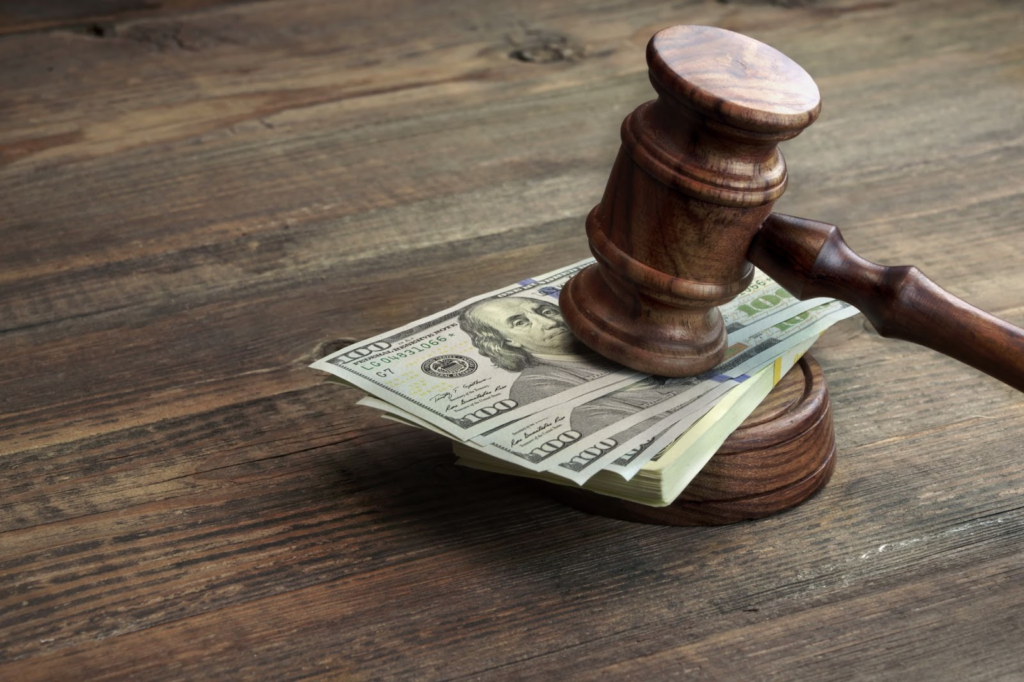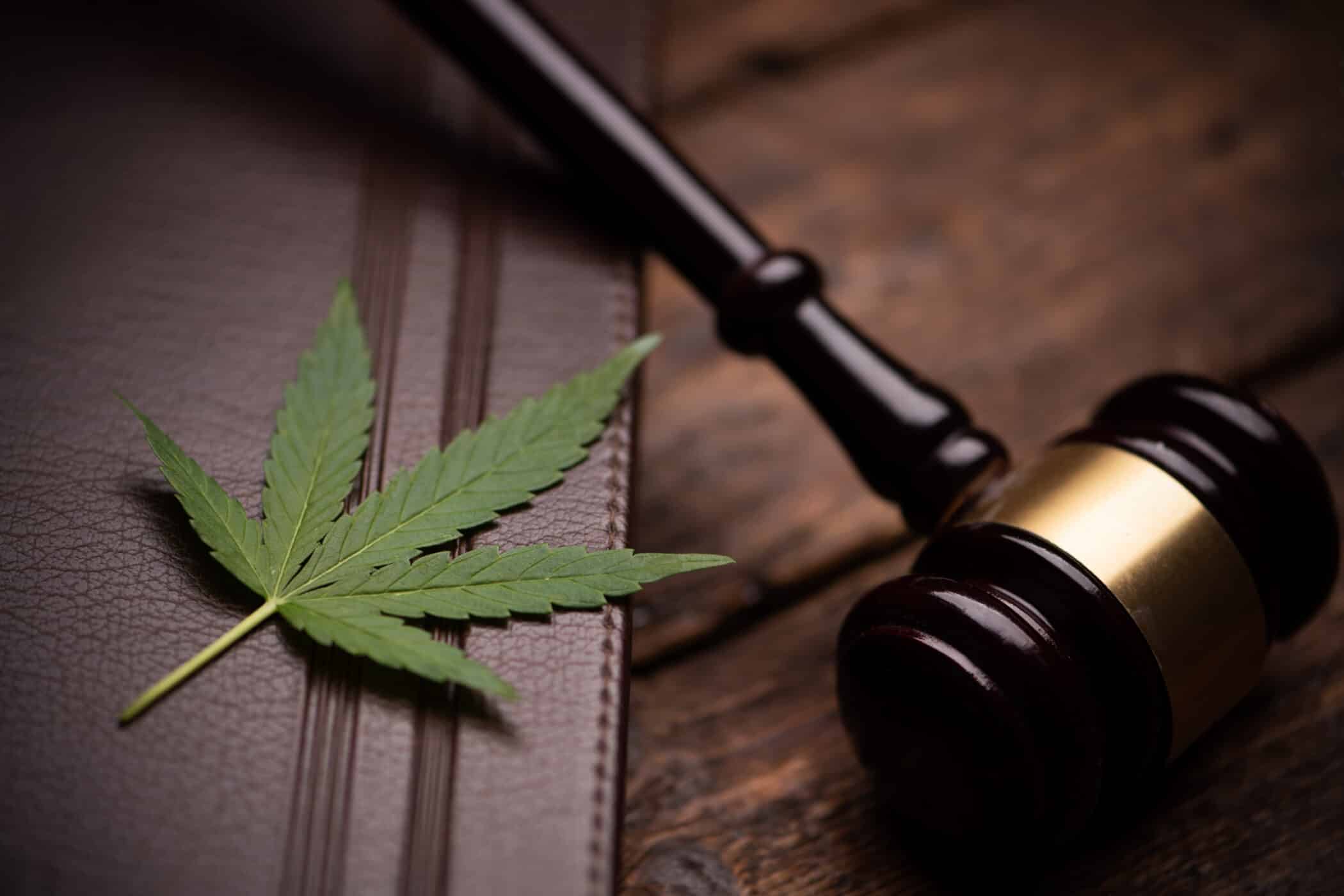Arrests and criminal charges are stubborn things. They do not disappear easily. Having one of these on your record can limit your individual freedoms and keep you from accessing a range of professional, academic, housing and financial resources. The best way to fight these limitations and gain your life back is to have your record expunged. You can only do this with the help of a skilled lawyer. Below, you’ll find a detailed guide to getting your record expunged in Texas.
Free Record Clearing Eligibility Test
The available options for clearing an individual’s record vary from state to state. Texas carries its own set of requirements and limitations, and navigating these proceedings is a difficult process. One key factor to consider with expungement (also called expunction) is that not all charges qualify for record clearing. However, you can easily find out if you qualify by taking this simple record clearing eligibility test.
This short test will ask you to answer a few questions about yourself, your charges, the state in which you live, and a few other details. Afterward, you will receive a response informing you of your options and what steps you need to take to move forward with an attorney.
Understanding the Expungement Process in Texas
Expungement (or expunction), is a judicial order that removes an individual’s arrest or prosecution from their permanent record. In the State of Texas, expungement only applies to acquittals, dismissals, pre-trial diversions, or instances where an arrest occurred but the state or county never filed a case. Expunction is not an option for cases leading to a conviction.
In some cases, if you avoided conviction but served a period of formal probation, such as with deferred adjudication, you may be able to apply for an Order of Nondisclosure. Nondisclosure limits access to certain parties requesting criminal information during background checks.
In general terms, expungement is akin to the erasure or destruction of your records, while nondisclosure is like sealing, or putting a lid on the container. Certain parties can still lift that lid now and then, depending on who’s asking for the information.
In Texas, there is a minimum waiting period following the arrest before filing an application for expunction, even if there were no charges. Applicable wait times are as follows:
- Class C misdemeanors: at least 180 days
- Class A and B misdemeanors: at least one year
- Felonies: at least three years
If the state or county brought charges against you, the statute of limitations must expire for every single crime for which you were arrested, not simply those the government charged you with.
Regardless of the details, individuals found guilty of certain crimes will not have access to expungement. Some of these crimes include:
- Capital Murder
- Use of a Child in the Commission of a Crime
- Aggravated Sexual Assault
- Sexual Assault
- Certain Drug Offenses
- Aggravated Kidnapping
- Indecency with a Child
- Injury to a Child, Disabled or Elderly Person
Basic Steps to Filing a Petition for Expunction
Filing an expunction petition and seeing the entire process through to its end requires several important steps. This list below serves as a general guideline for anyone navigating the expungement process.
- Determine eligibility
Criteria can vary depending on the type of offense, the details of the case, its severity, your criminal history and several other factors.
- Hire a good attorney
Arguably the most important step in the process, your success depends on you retaining strong legal counsel to guide you through every detail.
- Obtain necessary forms
Once you have determined eligibility and hired an attorney, obtain all appropriate forms for filing a petition for expunction or a petition for non-disclosure. You can find these forms at the court clerk’s office or on the court’s website. You can also ask your attorney to help you obtain the necessary documentation.
- Complete the petition
Fill out the expungement petition completely, working closely with your lawyer to ensure accuracy.
- File the petition
Return the completed petition and all supporting documents to the appropriate court. Pay all necessary fees and submit the documents to the court clerk. Be sure to retain copies for yourself.
- Serve notice
After filing your petition, you will typically need to serve notice to the prosecutor’s office and any other organizations referenced in your petition, including all connected law enforcement and government agencies.
- Attend the hearing
After you have filed your petition, the court will schedule a hearing. During this hearing you and your attorney will make the strongest case possible, arguing in favor of the expungement.
- The judge will make a decision
After hearing all arguments and reviewing your documentation, the judge will make a decision regarding your petition. If the judge approves, he or she will sign an expunction order. You will need to obtain certified copies of the order from the court clerk.
- Notify relevant agencies
Once you have certified copies of the expunction order in hand, provide them to each of the agencies listed in your petition, including the district attorney’s office, Department of Public Safety (DPS), applicable law enforcement agencies and any other listed organizations.

Are There Any Costs Associated with Obtaining an Expunction?
The cost of obtaining an expunction consists of two parts, filing fees and lawyer’s fees. The cost to file either a petition for expunction or a petition for nondisclosure in Travis County is $350. Every County sets its own fee schedule.
The county also charges $8 per agency for electronic notification of the six standard agencies listed on the notice. For each additional agency, you will need to pay a $14 fee. Attorney’s fees average between $950 and $3000 or more for an expungement. Some cases will cost upwards of $10,000 for complex situations and more serious offenses.
Your attorney will handle almost everything, from helping you fill out your paperwork properly, to gathering necessary information, working with the courts and finally, appearing in court on your behalf, often without you having to be present.
Do I Have an Obligation to Inform Anyone about an Arrest that Has Been Expunged?
If the court legally expunged the record, you don’t need to disclose the existence of the arrest or charge. Additionally, if you received a pardon, you do not have to reveal evidence of the conviction.
This holds true for most private and government institutions and agents. This includes employers, landlords, universities for which you are applying or when you are in conversations with law enforcement agents during routine stops.
However, several exceptions to this rule exist. A number of individuals and entities such as licensing agencies and other government agents or departments may gain access to expunged records for individuals working in fields involving intelligence or sensitive information, oversight or matters of national security.
To aid with an investigation, courts may sometimes access sealed records when deciding to enhance new criminal charges, impose a sentence, or to impeach (or silence) a witness. For example, sealed records may reveal certain character flaws within an individual currently serving as a witness.
In the private sector, even if the state grants the expunction of your records, certain employers may access criminal records if you apply for positions relating to sensitive fields. Employers will require persons looking to work with children, like bus drivers, counselors or teachers to reveal any such information during the application process. The same applies to persons working with the elderly or with those suffering from cognitive or physical impairment.
How Can I Provide Evidence that My Record Has Been Cleared?
Once the judge signs and issues the expunction order, you can obtain certified copies and present these to any employers, schools, landlords or other individuals and organizations that require verification of your expungement.
Which Entities Should I Include as Respondents in My Expunction Petition?
When filing an expunction petition the petitioner must include six standard agencies in the process, including:
- The arresting agency: This is the agency that made the initial arrest (police department, county sheriff’s office).
- The court with jurisdiction: This is the court where you filed the case.
- The prosecuting attorney’s office: This is the office responsible for prosecuting the criminal case. This could be the district attorney’s office or city attorney’s office, depending on the jurisdiction.
- The Department of Public Safety (DPS): The DPS maintains criminal records and fingerprint databases.
- Other law enforcement agencies involved: This includes additional state and federal agencies, jails, prisons and other detention and correctional facilities.
- Any relevant government agencies: This includes child protective services, probation departments, and all other agencies connected with the case.
The court requires the above respondents to provide any applicable information and records related to the case. Respondents may also appear at the hearing to make their case against the petitioner’s request for expunction.

Is It Necessary for Me to Personally Attend Court Proceedings for Expunging an Arrest from My Record?
It is not always necessary for you to personally attend court proceedings relating to your expunction petition. In many cases, your attorney can appear on your behalf. This is one of the many benefits of relying on an experienced lawyer to walk you through the process.
However, the requirements differ for each county. Additionally, it may be necessary for you to be present in court if the details of your case are more complicated or the judge wants to ask you additional questions about the offense, your criminal history or other matters.
Will the Court Automatically Approve My Expunction Petition?
The court will not automatically approve your expunction petition in Texas. Once you have filed the petition with the court that handled your case, they will review your petition. During this time, the court will consider several factors, such as the type of offense, the disposition of the case, and any eligibility requirements or waiting periods specified in Texas statutes.
Who Else Might Be Present During the Court Hearing for My Expunction?
Other individuals present include the judge or magistrate, both your attorney and the prosecuting attorney, along with witnesses to the event and individuals who might testify to your character.
Additionally, representatives of various agencies or entities such as law enforcement officers, jail and detention center officials or representatives of organizations that may be in possession of your criminal records may be in attendance. Lastly, court officials, such as clerks and guards will also be present.
How Long Does It Typically Take to Receive a Hearing Date After Submitting the Required Court Papers for Expungement?
It is wise to be patient during this time. Generally speaking, it will take 30 to 90 days to receive a hearing date. Wait times will vary, given the shifting workload of individual jurisdictions. It can take weeks to receive all your records from the court.
Are There Any Additional Steps I Should Take After the Judge Signs the Expunction Order?
You will need to take the following important steps after the judge signs the expunction order:
Obtain certified copies
Request certified copies of all signed expunction documents from the court clerk. These certified copies are necessary for presenting to various agencies to enforce your expunction.
Serve copies to relevant agencies
Provide copies of the signed expunction order to all agencies listed in the order. This includes law enforcement agencies, the prosecuting attorney’s office, the Department of Public Safety and all other agencies associated with your case. You can either mail or hand deliver each copy according to the individual requirements of each agency.
Follow up with each agency
It is good practice to contact each agency to verify that they have received and processed the order and have begun to take the necessary steps toward clearing their database of your record.
Check criminal databases
Monitor various criminal databases, including online databases and background check providers to ensure that they remove evidence of expunged records. It may take some time for all updated information to propagate to each database. It is a good idea to make periodic checks to ensure the organizations responsible for these databases abide by the order and remove any information connected with your record.
Update employment and housing applications
With your order in hand, it’s time to update your housing and employment records accordingly. In most cases, you can state that the arrest or conviction, expunged under Texas law, did not occur.
Exceptions include circumstances where authorized personnel require disclosure, such as when applying for the above mentioned positions involving special oversight, the care of protected individuals or with various government positions.

What Types of Interactions Result in an Arrest Appearing on My Criminal Record?
Several types of offenses may appear on your criminal record, including:
Arrests for criminal offenses
Examples include theft, assault, drug possession, DWI and several other crimes resulting in both misdemeanor or felony arrests.
Lawful arrests made during routine traffic stops
Officers may identify illegal drugs, weapons, open containers of alcohol or other illicit materials through your windows or open doors.
Arrests for warrants
If you have an outstanding warrant, law enforcement agencies may arrest you. This includes warrants for failure to appear in court, violating probation or other reasons.
Arrests related to domestic disputes
The record applies when law enforcement responds to a domestic disturbance call and makes a lawful arrest.
Arrests for outstanding fines or other warrants
In certain cases, law enforcement may arrest you for outstanding fines or warrants for non-payment or failure to comply with court orders, including unpaid child support, fees related to your probation or deferred adjudication and other fees.
Arrests for failure to appear in court or violating other terms of your probation
Both probation and deferred adjudication carry several conditions that you must follow precisely. If you fail to do so, the court can pursue your arrest.
Bear in mind that your arrest remains on your criminal record even when the offense doesn’t ultimately lead to a conviction. This is why you must file a petition for expunction to ensure that you clear your name.
Which Types of Arrests are Eligible for Expunction?
In the state of Texas, expunction is an option for certain types of arrests. This means that if you are successful in your petition, the government will erase all evidence of the arrest from your criminal record. The Texas Code of Criminal Procedure, Chapter 55, outlines specific eligibility criteria related to the process of expunction. The examples below represent a general list of arrests that may be eligible for expunction in Texas.
Acquittal or Dismissal
If you are first arrested then subsequently acquitted of the charges or if the court dismisses the charges, your record may be eligible for expunction. This includes situations in which you received an acquittal by a trial or an appellate court.
No-bill by Grand Jury
If a grand jury first reviews, then determines, that there is not enough evidence to proceed with formal charges, you may be eligible for expunction.
Identity Theft
When someone uses your identity to commit a crime and you can prove this fact, you may be eligible for expunction.
Pardon or Governor’s Recommendation of Pardon
You may be eligible for expunction if you receive a full pardon or a recommendation of pardon from the Governor of Texas for a previous criminal conviction.
Successful Plea Bargain
Depending on the details of the agreement, if you and your attorney succeed in your attempt to secure a plea bargain, you may be eligible for expunction.
Juvenile Offenses
In certain instances, arrests or records related to juvenile offenses may be eligible for expunction. The Texas Family Code covers eligibility criteria for such cases.
Deferred Adjudication Dismissals
If you serve a deferred adjudication, which is a form of probation where the state enters no conviction if you successfully complete all the terms and conditions of your probation, you may be eligible for expunction.

Can an Expunction Compel News Media to Remove References to My Arrest?
A successful expunction removes the evidence of certain offenses from your record, making it largely inaccessible to most people. Unfortunately, this does not automatically apply to news media outlets since they often have access to previously published material.
News media and other similar organizations operate independently and follow their own editorial policies. Even if they can’t access your record at present, they may in some cases still reference information they already have.
If you are concerned about public references to your arrest from news media outlets, consider taking the following steps:
Contact the news media outlet
Explain to them that the state has expunged your arrest, and request that they update or remove the information. Legally, they don’t have to comply. However, if they possess any sense of journalistic integrity, they may concede on the basis of accuracy.
Consult with an attorney
If the media source continues to reference an expunged record and/or broadcasts false or out-of-date information about you, consider retaining the services of a lawyer who specializes in media law and defamation. They will advise you on the best course of action.
Deal with online search results
If contacting news media outlets alone doesn’t solve the problem, consider partnering with an online reputation management service. These organizations provide individuals different solutions for dealing with online source(s) of misinformation.
Is It Necessary for Me to Hire an Attorney for the Expunction Process?
While it is not a requirement to hire an attorney when filing for an expunction, it isn’t wise to attempt the process alone. Your lawyer will help you fill out all information correctly so you can avoid costly and time-consuming mistakes.
Experienced attorneys have relationships with local judges and prosecutors, and understand the finer details of the expungement process. They are your most important advocate and will work hard to clear your record so you can pursue a life of greater access and freedom.




